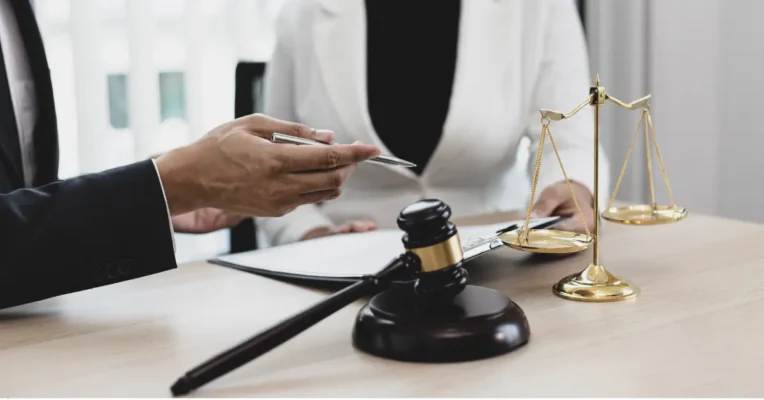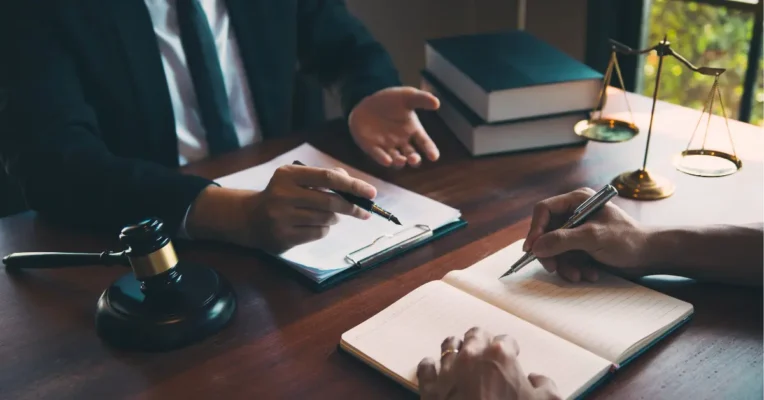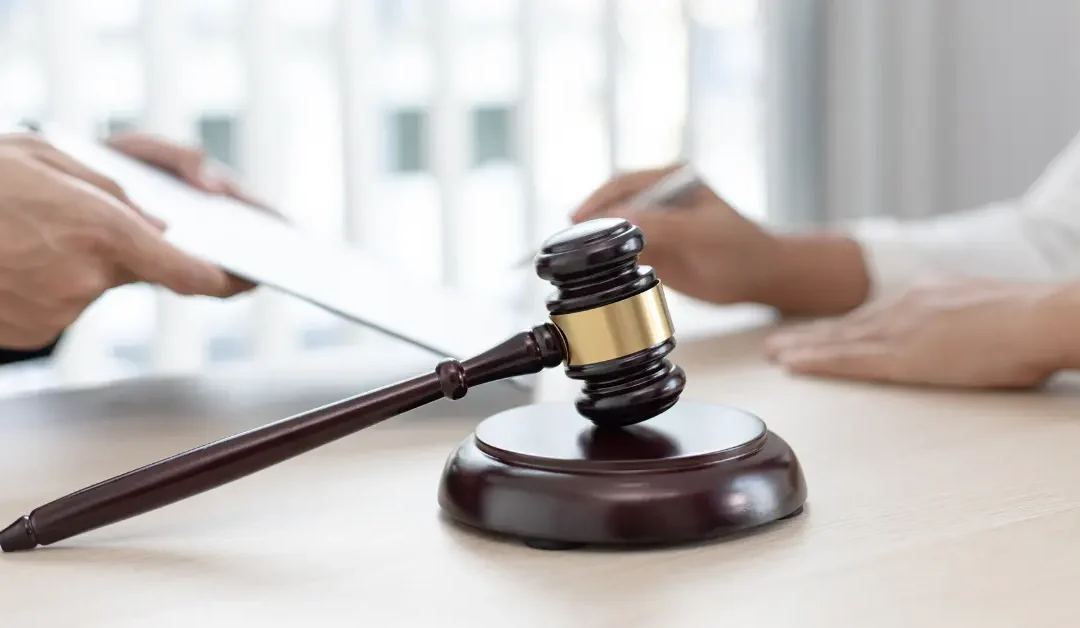Probate is the legal procedure through which a deceased person’s will is validated, and their assets are distributed under the supervision of a court. The probate process begins with the submission of the will to a probate court. Here, an executor is formally appointed to manage the distribution of the estate according to the deceased’s wishes. This stage involves collecting the deceased’s assets, paying debts and taxes, and eventually distributing the remainder to rightful heirs. It is vital for individuals to understand this process to ensure their estate is handled correctly after their passing.
The Essential Role of a Probate Lawyer
Understanding Probate Law Expertise
This expertise is crucial as probate law is complex and varies significantly from one jurisdiction to another. The attorney ensures that all steps of the probate process are followed according to state laws, which helps prevent legal complications that could delay the settlement of the estate. Their deep understanding of legal statutes and procedural nuances enables them to handle cases efficiently, even those that involve substantial assets or complicated family dynamics.
Probate Lawyers vs. DIY Probate Approaches
While some may consider managing probate independently to save costs, this approach often leads to increased risks and errors. A probate lawyer provides guidance and clarity, helping to navigate the maze of legal requirements confidently. They can preempt potential issues and offer solutions that a layperson might not be aware of, such as resolving unclear terms in the will or addressing unexpected claims against the estate. Their involvement ensures that all aspects of estate administration are covered comprehensively, greatly reducing the stress on the executor and beneficiaries.
The Importance of Professional Representation
They serve as an objective intermediary who can manage sensitive family dynamics during a time of grief. Their presence can deter potential conflicts among beneficiaries by ensuring that the estate administration process is transparent and fair. Moreover, their ability to handle complex legal issues, such as probate litigation, adds a layer of security for families dealing with high-stakes inheritance issues.

Key Benefits of Hiring a Probate Lawyer
Ensuring Accurate and Timely Paperwork Submission
Probate legal paperwork assistance is a critical service offered by probate lawyers, vital for the smooth execution of estate administration. The complexity and volume of documents required in probate cases can be overwhelming for individuals, often leading to errors or omissions that can delay proceedings and increase costs. Below are some key ways they contribute to a smooth probate experience:
- Reviewing Documents: These lawyers meticulously review each document before submission to ensure that all information is accurate and complete. It includes double-checking details such as names, dates, asset valuations, and any signatures required for legality. They cross-reference information to confirm consistency across all documents, avoiding discrepancies that could lead to legal challenges or rejection by the court. By performing a detailed review, probate lawyers ensure the paperwork meets court standards, minimizing the risk of rejections, amendments, or delays that could arise from overlooked errors.
- Meeting Deadlines: Probate cases operate under strict statutory deadlines, and missing these deadlines can result in fines, extended probate timelines, or even the dismissal of the case. Probate lawyers are diligent in managing these time constraints, establishing a clear schedule for each filing, and setting reminders to keep the process on track. They communicate with clients to ensure they understand the importance of meeting specific deadlines and collect necessary information well in advance. With a probate lawyer overseeing the timeline, clients can trust that all critical filings will be submitted on time, reducing stress and ensuring the estate administration process continues uninterrupted.
- Handling Complex Forms: It also often involves specialized forms, especially in cases involving extensive assets, real estate, or business interests. Probate lawyers are experienced in completing these complex forms accurately, ensuring they meet all requirements and are free from mistakes. This includes tax forms, accounting schedules, and inventories that detail the estate’s assets and liabilities. By managing these complex forms, probate lawyers help prevent potential issues, such as overlooked assets or misreported values, which could lead to audits or disputes. Their expertise streamlines the process and provides reassurance to clients that all financial and legal details are in order.
- Navigating Court Requirements: Probate procedures and requirements can vary by jurisdiction, with each court setting its own rules for document formats, filing methods, and processing times. These lawyers are well-versed in the specific requirements of local courts and can efficiently navigate these procedural nuances. They maintain up-to-date knowledge of jurisdictional variations, ensuring that each document adheres to local standards and filing protocols. Familiarity with court practices helps probate lawyers avoid procedural mistakes that could lead to rejections or delays, ultimately contributing to a smoother, faster resolution of the probate case.
In managing the complexities of document preparation, deadlines, and court-specific requirements, they help clients avoid common pitfalls that could otherwise hinder the probate process. Their expertise in handling probate paperwork provides peace of mind to those navigating the legal landscape of estate administration, allowing families to focus on their loved one’s legacy without the added stress of administrative errors.
Minimizing Delays and Avoiding Costly Errors
Delays in the probate process often stem from procedural errors or incomplete paperwork. A probate attorney plays a pivotal role in minimizing these delays by ensuring that each step in the estate administration is executed correctly the first time. Precision prevents the common pitfalls that can lead to financial losses for the estate, such as penalties for late tax submissions or additional court fees from filing corrections. Their proactive approach to managing the estate’s obligations ensures a smoother and more cost-effective resolution.
Providing Emotional Support and Mediation
The period following a loved one’s death is emotionally challenging for families, and managing an estate can add to the stress. In addition to their legal responsibilities, probate attorneys frequently mediate disputes among family members and offer emotional support. Their experience with similar cases equips them to offer compassionate guidance, helping to resolve disputes amicably and maintain family harmony. This support is invaluable in helping families navigate the emotional landscape of probate, making the process not only legally sound but also less burdensome.
Specialized Services Offered by Probate Lawyers
Initial Consultations and Case Assessments
An initial probate attorney consultation is a critical first step in managing an estate. During this consultation, the lawyer assesses the complexity of the estate, reviews any existing wills or legal documents, and provides a clear outline of the necessary steps in the probate process. This preliminary meeting allows the attorney to understand the specific needs of the estate and tailor their services accordingly. It also gives clients an opportunity to discuss their concerns and gain a comprehensive understanding of what to expect, setting a solid foundation for the collaboration.
Full-Service Probate Representation
Probate lawyer services often extend to full-service representation, which includes managing all aspects of the estate from start to finish. A comprehensive service is particularly beneficial for executors who are either geographically distant from the estate location or unfamiliar with legal proceedings. The lawyer handles everything from filing the will in court to distributing assets to the heirs. This alleviates the administrative burden on the executor, allowing them to focus on personal and family matters during a difficult time.
Assistance with Probate Litigation
In cases where the validity of a will is challenged, or there are disputes among the beneficiaries, probate litigation attorneys provide specialized legal representation. Their expertise in litigation can be invaluable in defending a client’s rights within the courtroom. These lawyers are skilled in navigating the contentious and often emotional aspects of will contests, using strategic legal tactics to advocate effectively for their client’s interests.
Real Estate Title Management
For estates that include real estate assets, a real estate probate attorney offers essential services in managing and transferring property titles. This process involves several complicated steps, such as re-titling the property in the heirs’ names and ensuring all real estate transactions comply with probate law. The attorney’s assistance ensures that these transactions are handled smoothly and in accordance with legal standards, preventing potential disputes or legal challenges in the future.

How Probate Lawyers Assist in Will Contests
Analyzing the Success Rate of Contesting a Will
The success rate can vary greatly depending on the specifics of the case. A probate lawyer provides an essential evaluation of the likelihood of success based on previous case law, the strength of the evidence, and the particular circumstances surrounding the will’s creation and execution. This analysis helps clients make informed decisions about whether to proceed with a contest. Probate lawyers utilize their in-depth knowledge of estate law to assess each case’s nuances, advising their clients on the feasibility and potential outcomes of challenging the will.
Legal Strategies for Will Contests
Will contests can be challenging legal battles, often requiring a probate lawyer’s expert knowledge and strategic thinking to ensure a favorable outcome for their client. Whether it’s defending a will against baseless claims or challenging its authenticity, probate lawyers utilize targeted strategies to uphold their client’s interests in court. Through a mix of document scrutiny, witness gathering, and expert analysis, they work to validate the decedent’s final wishes and protect beneficiaries’ rights. Below are some of the key strategies:
- Validity Challenges: One of the primary approaches in will contests is to challenge the validity of the will itself. Probate lawyers may argue that the will was improperly executed, perhaps missing required signatures or failing to meet state-specific formalities. They also investigate whether the decedent possessed the necessary mental capacity at the time of the will’s creation, which requires proving they understood the nature of their assets and intended distribution. If undue influence is suspected, probate lawyers gather evidence showing that another party manipulated the decedent into altering their will.
- Document Examination: This includes reviewing prior versions of the will to identify sudden or unexplained changes, such as alterations to beneficiary allocations or shifts in asset distribution. Lawyers also scrutinize the language used, as vague or ambiguous wording could lead to misinterpretations of the decedent’s wishes. If they find discrepancies, they may present these in court to argue that the will is not legally binding. A detailed document review helps probate lawyers highlight flaws that weaken the will’s credibility and support their client’s case.
- Witness Testimony: A powerful tool in defending or challenging a will is the testimony of witnesses who were present during its signing or who had a close relationship with the decedent. Probate lawyers gather statements from individuals who can verify the decedent’s mental state and intentions, as well as the absence of coercion or undue influence. Witnesses may include family members, friends, or even the attorney who drafted the will. Their testimony provides firsthand insights that can be pivotal in reinforcing or disputing the will’s legitimacy. By incorporating credible witness accounts, probate lawyers strengthen their client’s argument and provide the court with a fuller understanding of the circumstances surrounding the will’s creation.
- Expert Consultations: In will contests, probate specialists often turn to experts to validate or contest the document’s authenticity and the decedent’s mental state. Medical professionals may assess whether the decedent was mentally capable at the time of the will’s drafting, offering insights into cognitive impairments or health conditions that might have affected their decision-making. Handwriting experts are also consulted to verify signatures and detect potential forgery. These specialists provide objective, professional opinions that can substantiate claims about the will’s validity.
From questioning the will’s validity to utilizing expert testimonies, each tactic is carefully chosen to protect the client’s interests and ensure the decedent’s wishes are respected. These strategies not only strengthen the case in court but also provide a structured approach to resolving disputes that may otherwise tear families apart. Engaging a lawyer for estate settlement with experience in will contests can be invaluable in achieving a fair and lawful outcome.
Advising on When a Will Contest is Appropriate
Probate lawyer advice is crucial in determining the appropriate circumstances under which to contest a will. They guide clients through the intricate considerations involved, such as the potential financial and emotional costs versus the benefits of pursuing the contest. Probate lawyer guidance is invaluable in avoiding unnecessary litigation and focusing efforts where there is a significant justification for a challenge.
Managing Inheritance Disputes Within Families
Managing conflicts that emerge within families during the probate procedure is a specialty of family probate lawyers. Their role often extends beyond mere legal representation; they act as mediators who help maintain peace among family members. By facilitating discussions and offering neutral, professional advice, these lawyers help families reach amicable solutions that respect the wishes of the deceased and the rights of the beneficiaries. Mediation can prevent disputes from escalating into full-blown litigation, preserving family relationships and ensuring a smoother estate settlement process.

The true value of engaging in estate administration legal solutions lies in the peace of mind it brings to all parties involved. Knowing that a skilled professional is overseeing the legal aspects of estate distribution reassures families that the deceased’s wishes are honored and that the legal rights of all beneficiaries are protected. Knowing how to find a probate lawyer is crucial in mitigating the stress often associated with the probate process, allowing families to navigate the complexities of estate administration with confidence and tranquility.

